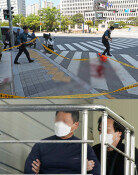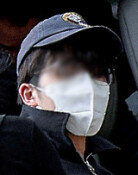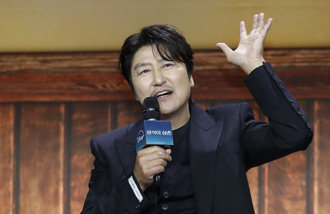North Feeling U.S. Financial Pressure
North Feeling U.S. Financial Pressure
Posted September. 18, 2006 07:05,
On September 15 last year when the fourth round of six-party talks was going on in Beijing, China, the U.S. Department of the Treasury designated Banco Delta Asia (BDA) as a channel through which North Koreas money was laundered.
At that time, nobody paid attention to this move. Pyongyang was so unaware of the potential ripple effects of indirect financial sanctions that it willingly signed four days later the September 19 Beijing agreement in which steps toward North Koreas nuclear renunciation were stated.
Koreas efforts to mediate between the North and the U.S.
The U.S. Treasury is spreading the message that A third-country bank or company which does business with North Korea might be disadvantaged against. On the other hand, North Korea is claiming, We suggest dividing legal funds from illegal funds. The freeze on legal funds should be lifted.
The Roh Moo-hyun administration views that a partial resolution of the Norths complaints is needed in order to get the North to return to the six-party talks. President Roh met Henry Paulson, U.S. treasury secretary, on September 13 and said, I hope that the U.S. sanctions against North Korea would not get in the way of the efforts to resume the six-party talks.
A representative of Pyongyang-based Daedong Credit Bank, affiliate that a British financial firm recently purchased, said, Wed like to provide information related to bank transactions to U.S. authorities so as to resolve their misunderstanding. Out of 24 million dollars, the amount of North Koreas money sitting in BDA, six million dollars belong to Daedong.
North Koreas funds identified by the U.S.
In February last year, the U.S. government notified the Korean government of the intelligence that Libya transferred money to North Korea. It said that North Korea exported uranium hexafluoride, nuclear material, to Libya through a Pakistani group in return for the money.
The U.S. did not give information as to how much money was transferred through which account and when. A source in Washington said, The Office of Intelligence and Analysis (OIA), an internal organization of the U.S. Treasury, and intelligence agencies are collaborating to identify the flow of money.
Stuart Levey, the Treasury Department`s undersecretary for terrorism and financial intelligence, recently said publicly, We were sure from the beginning that funds deposited at BDA was associated with weapons of mass destruction. But as we investigated further, bigger things (illegal activities) turned up. The U.S. investigations into North Koreas illegal funds are being expanded to banks in Vietnam, Singapore and Russia. A U.S. official even made a specific mention like a bank in Singapore. The Bush administration is strongly committed to eradicate the Norths illegal funds.
Assessment of the last one year
North Korea suffers as much as the U.S. is determined to curb its illegal activities. For the last year, North Koreas ordinary transactions through bank accounts have been significantly limited. A banker complained in June, Cash transactions increased, however, great inconveniences remain because foreign institutes suspect of the possibility that counterfeited dollar notes might be mixed in them.
Raphael Perl, research fellow at the U.S. Congressional Research Service, said, North Korea touched a beehive of making/distributing counterfeit dollars and laundering money through a third-country bank. The U.S. strategy of putting pressure on North Korea by pushing North Korea out of the international economic system is paying off.
srkim@donga.com







